第51章 X. (3)
Again, Thirdly, The Kings of Scotland had Feodal Possessions here; for Instance, The Counties of Cumberland, Northumberland and Westmoreland, were anciently held of the Crown of England by the Kings of Scotland, attended with several Vicissitudes and Changes until the Feast of St. Michael, 1237, at which Time Alexander King of Scotland finally released his Pretensions thereunto, as appears by the Deed thereof enter'd into the Red-Book of the Exchequer, and the Parliament Book of 20 E. I. and in Consideration thereof, Hen. 3. gave him the Lands of Penreth and Sourby, Habend' sibi Heredibus suis Regibus Scotiae, and by Virtue of that Special Limitation, they came to John the eldest Son of the eldest Daughter of Alexander King of Scotland, together with that Kingdom; but the Land of Tindale, and the Manor of Huntingdon, which were likewise given to him and his Heirs, but without that Special Limitation, Regibus Scotiae, fell in Coparcenry, one Moiety thereof to the said John King of Scotland, as the Issue of the eldest Daughter, and the other Moiety to Hastings, who was descended from the younger Daughter of the said Alexander: But those Possessions came again to the Crown of England by the Forfeiture of King John of Scotland, who through the Favour of the King of England he had Restitution of the Kingdom of Scotland, yet never had Restitution of those Possessions he had in England, and forfeited and lost by his levying War against the Kingdom of England, as aforesaid.
And thus I have shewn, that the Vicinity of the Kingdoms of England and Scotland, and the Consequence thereof, viz.
Translations of Persons and Families, Intercourse of Trade and Commerce, and Possessions obtained by the Natives of each Kingdom in the other, might be one Means for communicating our Laws to them.
But Secondly, There was another Means far more effectual for that End, viz. The Superiority and Interest that the Kings of England obtain'd over the Crown and Kingdom of Scotland, whereby it is no Wonder that many of our English Laws were transplanted thither by the Power of the English Kings. This Interest, Dominion, or Superiority of the Kings of England in the Realm of Scotland may be considered these Two Ways, viz. 1st. How it stood antecedently to the Reign of King Edw. I. And 2dly, How it stood in his Time.
Touching the former of those, I shall not trouble myself with collecting Arguments or Authorities relating thereto; he that desires to see the whole Story thereof, let him consult Walsingham, sub Anno 18 Edw. I. as also Rot. Parl. 12 R. 2. Pars secunda, No. 3. Rot. Claus. 29 E. I. M. 10. Dorso, and the Letter of the Nobility to the Pope asserting it. Ibid.
And this might be one Means, whereby the Laws of England in elder Times might in some Measure be introduced into Scotland.
But I rather come to the Times of King Edw. I who was certainly the greatest Refiner of the English Laws, and studiously endeavoured to enlarge the Dominions of the Crown of England, so to extend and propagate the Laws of England into all Parts subject to his Dominion. This Prince, besides the ancient Claim he made to the Superiority of the Crown of England over that of Scotland, did for many Years actually enjoy that Superiority in its full Extent, and the Occasion and Progress thereof was thus, as it is related by Walsingham, and consonantly to him appears by the Records of those Times, viz. King Edw. I. having formerly received the Homage and Fealty of Alexander King of Scots, as appears Rot. Claus. 5 E. I. M. 5. Dorso, was taken to be Superior Dominus Scotiae Regni.
Alexander dying, left Margaret his only Daughter, and she dying without Issue, about 18 E. I. there fell a Controversy touching the Succession of the Crown of Scotland, between the King of Norway claiming as Tenant by the Curtesy, Robert de Bruce descended from the younger Daughter of David King of Scots, and John de Baliol descended from the elder Daughter, with divers other Competitors.
All the Competitors submit their Claim to the Decision of Edw. I. King of England as Superior Dominus Regni Scotiae, who thereupon pronounced his Sentence for John de Baliol, and accordingly put him in Possession of the Kingdom, and required and received his Homage.
The King of England, notwithstanding this, kept still the Possession, & Insignia of his Superiority. his Court of King' sBench sate actually at Roxborough in Scotland, Mich. 20, 21 Ed.
I. coram Rege, and upon Complaint of Injuries done by the said John King of Scots, now restor'd to his Kingdom, he summoned him often to answer in his Courts, Mich. 21, 22 Edw. I. Northumh.
Scot. He was summoned by the Sheriff of Northumberland to answer to Walbesi in the King's Court, Pas. 21. E. I. coram Rege. Rot.
34. He was in like wanner summoned to answer John Mazune in the King's-Bench for an Injury done to him, and Judgment given against the King of Scots, and that judgment executed.
John King of Scots, being not contented with this Subjection, did in the 24th Year of King Edw. I resign back his Homage to King Edward, and bid Defiance to him; wherefore King Edw. I the same Year with a powerful Army entered Scotland, took the King of Scots Prisoner, and the greatest part of that Kingdom into his Possession, and appointed the Earl Warren to be Custos Regni, Cressingham to be his Treasurer, and Ormsby his Justice, and commanded his Judges of his Courts of England to issue the King of England's Writs into Scotland.